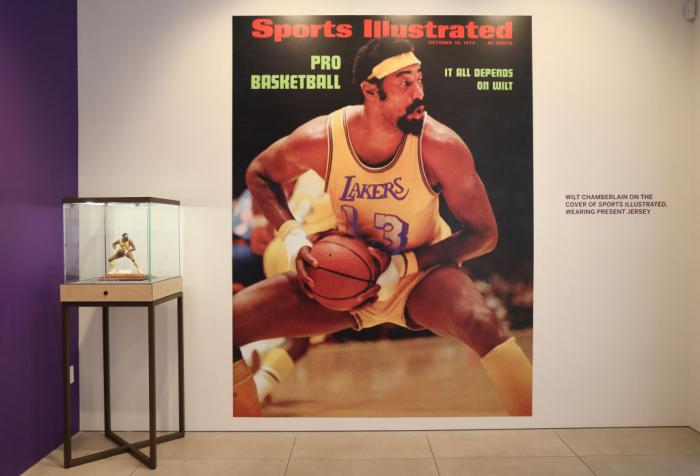

Nobody Wants to Your Read AI Generated Articles, Tech Bros!
By Kayleigh Donaldson | Miscellaneous | January 22, 2024 |
By Kayleigh Donaldson | Miscellaneous | January 22, 2024 |

Over the past year or so, there have been a lot of layoffs in the journalism sector. Granted, there’s never really been a time over the prior decade where writers being sacked or their entire publication being shuttered wasn’t a distressingly common occurrence. Recently, however, it’s been tough to overlook how many previously beloved websites have turned their pages over not to new or established talent but AI bots like Chat GPT. Sports Illustrated recently came under fire for a variety of fake profiles and AI-generated content passed off as the work of actual humans (that company also recently laid off most of its workers. A total coincidence, I’m sure.) The AV Club admits to using AI for huge chunks of its output. Its parent company, G/O Media, sacked the entirety of Gizmodo’s Spanish-language team and replaced them with a sloppy AI translation system full of mistakes. Buzzfeed is full of AI crap. So is CNET and Insider.
This is apparently our future. No humans creating works of innovation, amusement, or curiosity, just regurgitated word salad via a system built on plagiarism and questionable ethics. It’s an evolution that has, as far as I can tell, zero earnest support. Aside from blue check jerks who spent most of 2021 plugging NFTs before the bottom fell out of that scam, I can’t find any person who regularly reads things on the internet celebrating a shift towards AI. Whenever an obviously AI-created article goes viral, it’s not because anyone is cheering on its genius. It’s because we’re dunking on it like it’s going out of fashion.
AI-generated articles are pathetically easy to spot. They practically come with their own alarm bell. Even the most casual readers of the internet notice the vibe shift. The work is plentiful in words but lacking in meaning. Everything reads like a watered-down Wikipedia page, with lots of focus on listing the names of people involved in, say, the film being described but no real depth beyond that. Expect tons of buzzwords, the kind of stuff that appears in a lot of clickbait-esque headlines. Grammatical errors are to be expected, as are straight-up falsehoods. The work is simultaneously formulaic yet nonsensical: the words are in the right order but read clumsily. Shock horror, it all feels like a robot did it.
This artifice of craft, the shameless lack of concern for readability or audience satisfaction, means that a hell of a lot of websites have started to feel like parodies of their former selves. The AV Club, which gutted out its beloved team of writers and moved away from the esoteric enthusiasm that made it famous, now feels like stereo instructions with the occasional reference to a popular film. As Futurism noted last year, these AI-generated pieces were clearly copying from places like IMDb. Everything read as anodyne and generalized as possible, to the point where you wondered why anyone even bothered (we know why - ad revenue that is dependent on good-faith former fans and SEO drives.) It’s a sign of how low the bar has fallen that the AV Club actually crediting IMDb as their AI source counts in their favour compared to the competition.
It seems almost too obvious to detail that AI content (and I do mean ‘content’ by its most insufferable capitalistic definition, as Martin Scorsese noted in a piece he wrote for Harper’s) is for CEOs rather than readers, writers, or anyone with a soul. These conglomerates did not acquire companies like G/O Media to better foster their legendary cultural journalism for future generations. I would be stunned if any of these Silicon Valley goons has ever read the sites they bought for obscenely cheap costs. We’re painfully familiar with the slow dissolve of these publications once they’re purchased: We’re told that nothing will change and that the new bosses are such big fans; layoffs start and the things avid readers loved most about the site start to disappear or are watered down; there are suddenly more listicles, more general slop that could be found on any other content mill; then there are even more layoffs and job ads go up looking for cheaper, conveniently non-union workers; by the end, all that’s left is the bare foundations of the original site, held in place solely to bolster bland copy-paste crap that is indistinguishable from the clickbait ads you find at the bottom of the Daily Mail (‘You won’t believe how hideous this formerly attractive actress is now! Click through 64 images in a slideshow to find out!’)
Why bother buying the site? It’s less for its future than its past. A site like the AV Club has an incredible library of work from some of the most influential and legendary writers on this here internet. The archive is well-established and already prominently featured in search results. I imagine the ad revenue generated just from that is sizeable enough to warrant investment. Even if it’s not millions of dollars, it would put them in the black because, guess what, it wouldn’t involve paying writers. Build your content mill on top of that and why worry about employees when the machine churns it all out?
It barely matters that the entire process makes everything utterly unreadable. It’s bloody torture trying to decipher anything of even minute independent thought in a Chat GPT piece. It’s all sound and fury signifying nothing, a bunch of plagiarism churned out into something that is technically readable (but not always) and empty of ideas. It speaks to an overwhelming resentment towards those who create as well as an undervaluing of the work they produce.
I’m reminded of every bad-faith tech bozo on Twitter who claims that AI art made from sites like Midjourney is ‘democratizing’ the process of who can paint or draw or direct. That’s bullsh*t, a get-out-of-labour-free card from people who either have no desire to push themselves or are simply too untalented to even bother. They want to steal, to press a button and have everything done for them. They don’t want to create; they want to have created, and even then, I think the latter part is debatable. True democratizing of creativity would be fighting for fair wages so that entry to the cultural sector isn’t dependent on your parents or net worth. It would be acknowledging unions and making an effort to diversify your newsroom beyond legacy hires. It would be encouraging investment in schools from governments who cut arts funding the moment they claim we all need to tighten our belts.
AI is not a money-saving enterprise: it’s a way for the rich to make even more money and rob the majority of both earnings and pleasure. It is an act of profound arrogance and disrespect to replace humans with AI and then expect everyone to shut up and eat their slop. And what we’re left with is a sea of identical content mills, each of them using the same bots to ‘write’ the same stories over and over. Content, content everywhere, and not a thing to read.
← 'What Common Product Has a Feature You're Not Sure Everyone Is Aware Of?' | An Ode to Ole Munch, Sin-Eater of 'Fargo' →
More Like This
'Enter Sandman' As You've Never Heard It Before
Old Man Yells At Cloud, Maybe, but Computers Really Did Ruin Music
Turns Out 'Madame Web' Was Good For Something After All!
Why All Action Movies Look the Same Now
Please Come Back To Us, Coen Brothers!

Jenna Lyons Has Conditions For ‘Real Housewives’ Return
This Week On ‘Selling Sunset’: Irreconcilable Differences
Huey Lewis Was Inspired By 'Mamma Mia' For His Next 'Career Event'
Paramount+ Is Getting Cues From David Zaslav
Yorgos Lanthimos Reteams with Emma and Viggo Goes West In Three Trailers
Kristen Stewart Will Never Make an ‘Algorithmic’ Marvel Movie
More Like This
'Enter Sandman' As You've Never Heard It Before
Old Man Yells At Cloud, Maybe, but Computers Really Did Ruin Music
Turns Out 'Madame Web' Was Good For Something After All!
Why All Action Movies Look the Same Now
Please Come Back To Us, Coen Brothers!
Reviews